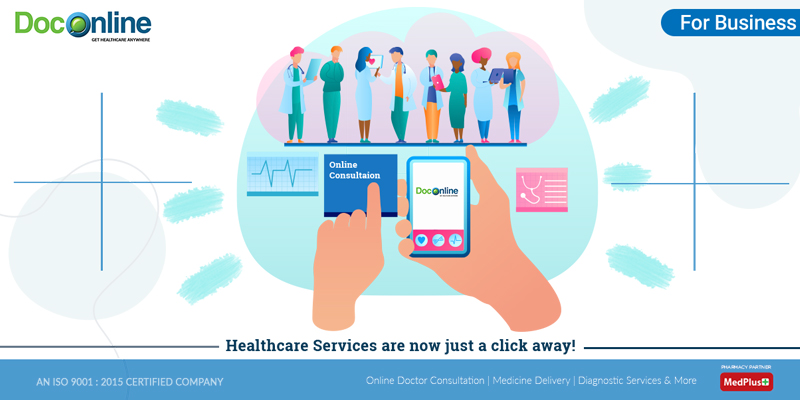The Rise of Subscription-Based Medical Care and Its Influence on Individual Treatment
As medical care progresses, the subscription-based design is acquiring traction, assuring to reinvent client care by offering predictability and availability. The capacity for these models to improve health care delivery elevates pressing questions concerning their long-lasting sustainability and inclusivity. Are these registration solutions the future of health care, or do they risk leaving at risk populaces behind?
Understanding Registration Health Care Models
Realizing the idea of registration health care models entails analyzing a transformative approach to clinical solutions that stresses cost and ease of access. These models, usually described as direct medical care (DPC) or concierge medication, have arised as innovative choices to conventional fee-for-service medical care systems. Membership medical care allows individuals to pay a set monthly or annual cost for a defined set of clinical solutions, which may include endless office brows through, routine examinations, and standard lab tests, without the requirement for typical insurance coverage payment.
The framework of subscription health care designs is designed to improve individual treatment by eliminating third-party payers and complex invoicing codes, consequently reducing management concerns. Health care carriers can concentrate more on client care, promoting more powerful patient-provider partnerships. This version additionally advertises preventative treatment by urging normal visits, as the financial obstacle of per-visit charges is removed.
The membership design usually encourages doctor to manage smaller patient panels, enabling even more tailored treatment. It lines up financial incentives with patient health end results, as providers are encouraged to keep individual fulfillment and wellness. In general, understanding registration medical care designs needs recognizing their potential to improve exactly how treatment is supplied and accessed.
Advantages for People and Providers

With a steady profits stream, healthcare specialists can devote even more time to each client, leading to an extra individualized and comprehensive treatment experience. The focus on precautionary care within subscription plans can lead to better person outcomes and lowered long-lasting healthcare costs.
Problems and difficulties
While subscription-based medical care designs existing numerous benefits, they likewise feature a set of difficulties and problems that should be resolved. First, availability continues to be a significant problem, as these versions frequently target people that can afford regular monthly charges, possibly leaving out low-income populaces. This elevates moral questions regarding equitable accessibility to medical care services. Furthermore, the different nature of registration strategies can bring about complication amongst people regarding coverage specifics, possibly causing unmet assumptions or poor treatment.
Financial sustainability of subscription-based models is an additional problem. Companies should balance the set revenue from memberships with the variable expenses of healthcare services, which might change why not try this out because of unexpected medical demands. This can produce pressure to restrict solutions or rise costs, possibly affecting client complete satisfaction and care quality.
In addition, regulatory oversight of subscription-based medical care models is still evolving. The lack of standardized frameworks can bring about irregular service high quality and liability, complicating efforts to ensure person security. Last but not least, the integration of innovation-- typically a cornerstone of these designs-- elevates concerns concerning data privacy and protection, as delicate patient information can be susceptible to breaches. Addressing these challenges is critical for the fair and successful execution of subscription-based healthcare.
Influence On Patient-Doctor Relationships
One significant effect of subscription-based health care designs on patient-doctor relationships is the possibility for boosted connection and personalized treatment. By adopting a membership model, medical professionals can take care of a smaller sized person panel, enabling for even more dedicated time with each individual. This enhanced schedule promotes a much deeper understanding of a patient's clinical background, lifestyle, and preferences, enabling much more customized treatment strategies and interventions.

Nonetheless, it is necessary to recognize that while subscription-based models might benefit those that can manage them, they could unintentionally broaden healthcare disparities. Individuals that are unable to join these versions could experience decreased access to individualized treatment, possibly affecting their relationships with doctor. Hence, while the membership version offers encouraging benefits for patient-doctor partnerships, it likewise postures obstacles that require to be dealt with to make sure equitable healthcare accessibility.
Future of Health Care Access

The role of innovation can not be forgotten in this makeover. Telemedicine systems and digital health records assist in smooth interaction between individuals and health care service providers, breaking down logistical and geographical obstacles. In addition, innovations in fabricated knowledge and data analytics can even more individualize medical treatment by predicting individual requirements and maximizing treatment plans.
Nevertheless, the future of healthcare access also offers challenges, such as making sure equity throughout various socio-economic groups. Policymakers and doctor have to work together to connect the digital divide, making certain that subscription-based versions stay economical and inclusive. As these systems develop, they hold the guarantee of making medical care much more accessible, reliable, and patient-centric.
Final Thought
Subscription-based healthcare versions are improving client care by supplying a steady cost structure and improving pop over to this site access. These models enhance patient-provider partnerships with personalized care and routine sees, emphasizing preventative health and wellness. Despite these benefits, difficulties such as ease of access issues for low-income populaces and the demand for fair health care solutions continue. The rise of subscription-based healthcare encourages proactive person interaction, which has the possible to boost patient outcomes and contentment, signaling a transformative change in medical care distribution.
As medical care progresses, the subscription-based version is getting traction, promising to revolutionize person treatment by using predictability and accessibility.Subscription-based health care versions offer distinct benefits for both carriers and individuals, enhancing the general medical care experience.As medical care systems evolve, the future of medical care gain access to frequently hinges on the integration of ingenious designs and modern technologies.Subscription-based healthcare designs are reshaping client treatment by giving a steady expense framework and enhancing accessibility. The surge of subscription-based medical care encourages official site proactive person interaction, which has the possible to improve client outcomes and complete satisfaction, signaling a transformative shift in health care shipment.